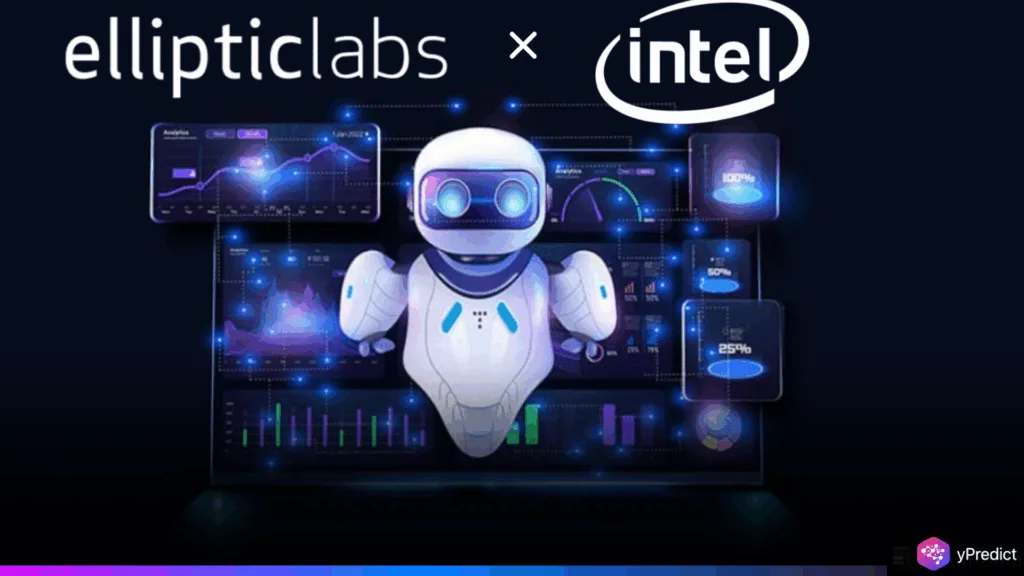
Elliptic Labs and Intel have announced a long-term partnership to develop AI-powered laptops that respond intuitively to users. Their collaboration brings Elliptic’s AI Virtual Smart Sensor software to Intel’s latest AI chips, enabling real-time interaction and energy-efficient sensing. These laptops can detect user presence, automate device connections, and respond instantly to context. The partnership marks a key step in shifting PCs from passive tools to intelligent collaborators. With leading PC manufacturers adopting this solution, both companies aim to set a new standard in smart, sustainable, and adaptive personal computing. The AI integration is already live across multiple markets.
Making the PC Think With the User
The partnership between Elliptic Labs and Intel reflects a growing trend: embedding intelligence directly into consumer hardware. By combining Elliptic’s AI Virtual Smart Sensor software with Intel’s on-device AI chips, the companies are transforming laptops into adaptive, context-aware machines. These AI features run efficiently without draining battery life, making them ideal for today’s mobile work and hybrid environments. The sensor technology enables the system to know when a user is present, unlock screens, dim displays, or even initiate seamless cross-device communication, all without requiring user input. Laila Danielsen, CEO of Elliptic Labs, said the new AI laptops “don’t just wait for commands; they think with you.”
This real-time sensing platform reflects a shift in user expectations. PCs are no longer just computational tools; they’re evolving into responsive companions. According to Intel’s Ken McKee, the goal is to replace passive interaction with proactive functionality. These capabilities are already shipping in consumer laptops and have started to scale globally. As Intel rolls out next-gen chips tailored for AI workloads, Elliptic’s software helps unlock the hardware’s full potential. Together, they’re not only enhancing laptop intelligence but also redefining user experiences around intuition, presence, and automation.
Contextual Intelligence Becomes the New Computing Standard
Elliptic Labs’ AI Virtual Smart Sensor Platform goes beyond basic machine learning. It integrates system telemetry, ambient data, and cloud-based models to deliver hyper-personalized user experiences. Running on over 500 million devices already, it has proven scalable across brands and platforms. For Intel, this partnership adds strategic depth. AI tech capabilities are no longer optional; they’re core to user value. The seamless interaction between hardware and software in these new systems shows how contextual intelligence improves productivity, privacy, and sustainability. This means laptops that not only learn habits but also predict needs, automating routine tasks and enhancing everyday use.
Ken McKee of Intel calls this “a shift from passive machines to active partners.” The idea is simple but transformative: your PC senses, adapts, and collaborates. From conserving energy when users walk away to instantly connecting with nearby devices, the platform turns awareness into action. As demand grows for smarter, lighter, and more secure laptops, this collaboration may set the baseline for future personal computing. The shift is not just technical; it’s cultural. These innovations could redefine how people relate to technology, moving from command-based input to shared understanding and fluid interaction.
AI Tech Is No Longer a Feature, It’s the Future
Elliptic Labs and Intel are shaping a future where AI tech is at the core of every interaction. By embedding intelligence directly into PCs, they’re creating machines that don’t just react, they anticipate, learn, and adapt. This partnership aligns with industry trends that demand seamless, efficient, and human-centered tech. With real-time sensing and on-device AI now possible at scale, the standard for personal computing is rising. No longer passive or static, your PC becomes a partner, ready to work with you, understand your context, and respond naturally. It’s a future where AI doesn’t just assist; it collaborates.






